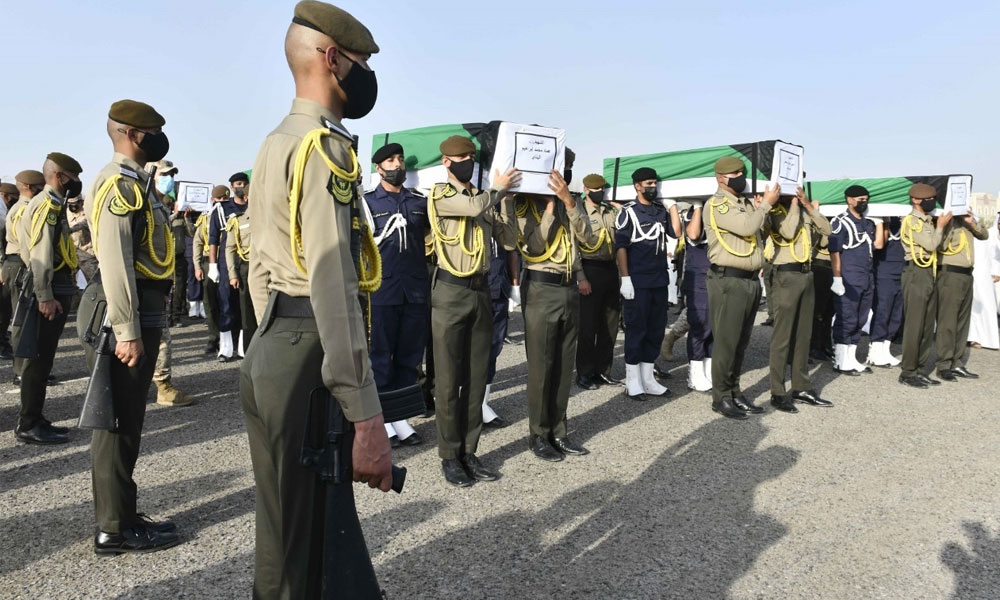Kuwait: The love of one's homeland could be expressed in various forms and actions; however, there is no higher honor than sacrificing life for the safety of family and country.
With the return of Kuwaiti martyrs' remains to their homeland, those heroes had solidified their legacy of sacrifice and patriotism in the hearts and minds of their countrymen and family.
Brother of Martyr As'ad Al-Sultan, Ahmad Al-Sultan told KUNA that his sibling had finished high school when the Iraqi invasion occurred on August 2, 1990, noting that his brother was detained by the invading forces with his whereabouts undetermined until 2021 when authorities notified the family about the discovery of his remains in March of that year.
Al-Sultan indicated that he recognized the remains of his brother through his personal belongings, revealing that the martyr was killed by a gunshot to the head and hip.
 Martyrs remains received
Martyrs remains receivedNevertheless, Ahmad Al-Sultan expressed pride in his brother's sacrifice, saying that his martyrdom was not in vain.
Similarly, son of Martyr Naji Abdullah, Fahad Naji said that his father was detained two weeks after the Iraqi invasion, affirming that Naji Abdullah was part of the courageous Kuwaiti resistance.
He was a brother-in-arms with two other martyrs and resistance members Jehad Al-Mutawa and Hassan Al-Shimmari, recounted Fahad Naji, adding that his father was sent to Iraq after being detained.
In 2021, the Interior Ministry contacted the family and was informed about the sacrifice of my father, he added.
 Martyrs remains received
Martyrs remains receivedFahad Naji said that after DNA test confirmed the remains of his father, he had to identify the body via personal belongings.
Kuwait had 612 missing persons and POWs, said Assistant at the Amiri Diwan and Director General of the Kuwait Martyrs Bureau Salah Al-Awfan, adding that it was paramount for the country to know the fate of Kuwait's prisoners.
He indicated that there were 240 remains of Kuwaiti martyrs laid to rest in Kuwait, adding that the remains of 260 martyrs were still yet to be found.
There are 53 martyrs named by Kuwaiti courts with their families requesting for the retrieval of their remains, he indicated.
 Martyrs remains received
Martyrs remains receivedThe process of returning the remains was not easy; the State of Kuwait had to hold conferences in Kuwait and abroad in the early 1990s to propagate this just cause, an effort, which led to international conference and meetings to determine the whereabouts of Kuwait's Prisoners of War (POW).
The lack of information and sources were the main obstacles facing Kuwaiti officials, but despite the circumstances, the POW and missing persons committee at the Foreign Ministry continued the quest to find the remains in coordination with the International Red Cross (IRC), United Nations Assistance Mission for Iraq (UNAMI), and Iraqi authorities.
The efforts had resulted in the discovery of mass graves throughout Iraq and with DNA sampling and test conducted by the forensic department at Kuwait Interior Ministry, many of the martyrs remains were discovered.
When the thorough identification processes were concluded, Kuwaiti authorities would contact family members of the martyrs, putting them at ease and informing them about their sons and daughters sacrifices.











